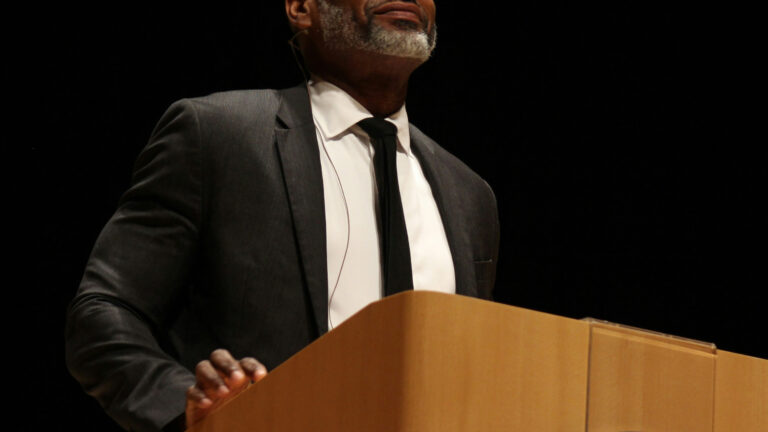Unfortunately, Africa is home to a number of the endangered species. These include the well known (Gorillas, Cheetahs, Wild Dogs and Rhinos) and the lesser known (Ethiopian Wolf and Riverine Rabbit of the Karoo region). There is a real threat that in our lifetime, some of these species will not survive. This is real, people!
An Addition to the List of Endangered Species
Seeing many of these animals in the wild is a rare privilege. Personally, I’ve been blessed to sit just a few meters away from a massive Silverback Gorilla in Rwanda. I’ve watched a Black Rhino stroll up to a waterhole in Namibia. In Tanzania I have enjoyed the privilege of watching a majestic Cheetah on the plains of the Serengeti as well as fierce African Wild Dogs on the hunt. It really is something special to see. It is even more special to be a part of doing something to protect these many endangered species. However, recently, I became more aware of another endangered species.
If we were to lose the original languages of the Bible it would be devastating for the gospel.
Not long ago I attended a gathering in Uganda, focused on theological education in Africa. Present at the meeting were deans of large universities and principals of theological colleges. As we sat and discussed the plight of theological education on the continent, one of the delegates remarked: “the original languages of the Bible— Ancient Greek and Hebrew—are endangered species in Africa”. Though it was a striking comment at the time, its significance was not immediately obvious. But as I’ve reflected on it more and more, the thought has continued to reverberate through my mind. If this continent was to lose some of its magnificent wildlife it would be tragic. But if we were to lose the original languages of the Bible it would be devastating for the gospel.
Do We Really Need the Original Languages?
Writing in the 16th century, the German Reformer Martin Luther made this point. He says: “Let us be sure of this: we will not long preserve the gospel without the languages. The languages are the sheath in which this sword of the Spirit is contained.” Multiplying analogies he goes on, calling the original languages: the casket in which this jewel is enshrined; the vessel in which this wine is held; and the larder in which this food is stored. More recently, writing from Kenya, Enoch Okode made a similar point. He concludes his paper on the original languages, writing: “It’s hard to maintain the centrality of the word if we view the biblical languages as a non-essential and optional extra”.
Enoch Okode says: ‘It’s hard to maintain the centrality of the word if we view the biblical languages as a non-essential.’
Though centuries apart and from vastly different contexts, Luther and Okode draw similar conclusions. Thus I think it’s well worth our while paying attention to their warnings. If my colleague from Uganda is correct, if Greek and Hebrew are endangered species in Africa, then the church in Africa is in trouble. This is real, people!
The African Church Is In Real Danger
The church needs leaders, preachers and teachers who have the ability to engage meaningfully with the original languages of the Bible. This is necessary so that they’ll be able to defend the truths therein. To quote Luther again, “A simple preacher, it is true, has so many clear passages and texts available through translations that they can know and teach Christ, lead a holy life, and preach to others. But when it comes to interpreting Scripture, and working with it on your own, and disputing with those who cite it incorrectly, he (or she) is unequal to the task; that cannot be done without the languages”. The African church needs people who can interpret the Bible, working on their own and disputing with those teaching error.
The African church needs people who can interpret the Bible, disputing with those teaching error.
Maybe you aren’t convinced. Let’s consider one example: the doctrine of the deity of Christ. When a preacher who does not know the original languages is confronted by another teacher who claims that John 1:1 asserts that Jesus is only “a god” and not “the God” how will they respond? If this preacher was equipped with a good understanding of Greek, both grammar and structure, he would have an answer. For “a god” is not a valid translation of the Greek.
We Must Protect These Endangered Species
Thus we should not disparage or downplay the importance of the original languages in preparation for church ministry. Rather, we should be doing everything we can to protect this endangered species on the African continent. Those preparing for a lifetime of ministry should seek Bible colleges and seminaries committed to instructing their students in the original languages. I’ve been a part of that commitment for several years now. And it has been an immense joy to see the Bible come alive in students’ eyes as they begin to read Greek or Hebrew for the first time.
We should not downplay the importance of the original languages in preparation for church ministry.
In closing, I encourage you to be concerned about Africa’s endangered species. For we can do something about this problem. Every time you see a “save the Rhino” sticker, or hear about the plight of the Cheetah, think how you might help. Consider our children and their children, so that they also have the chance to see these magnificent creatures in the wild. But every time you hear about those endangered species, remember Greek and Hebrew too. Then consider doing something to save them for future generations too. Maybe you could support a future leader of the African church, so that they can study the original languages. Finally, what about yourself? Perhaps you should consider enrolling in a course to study them as well.









